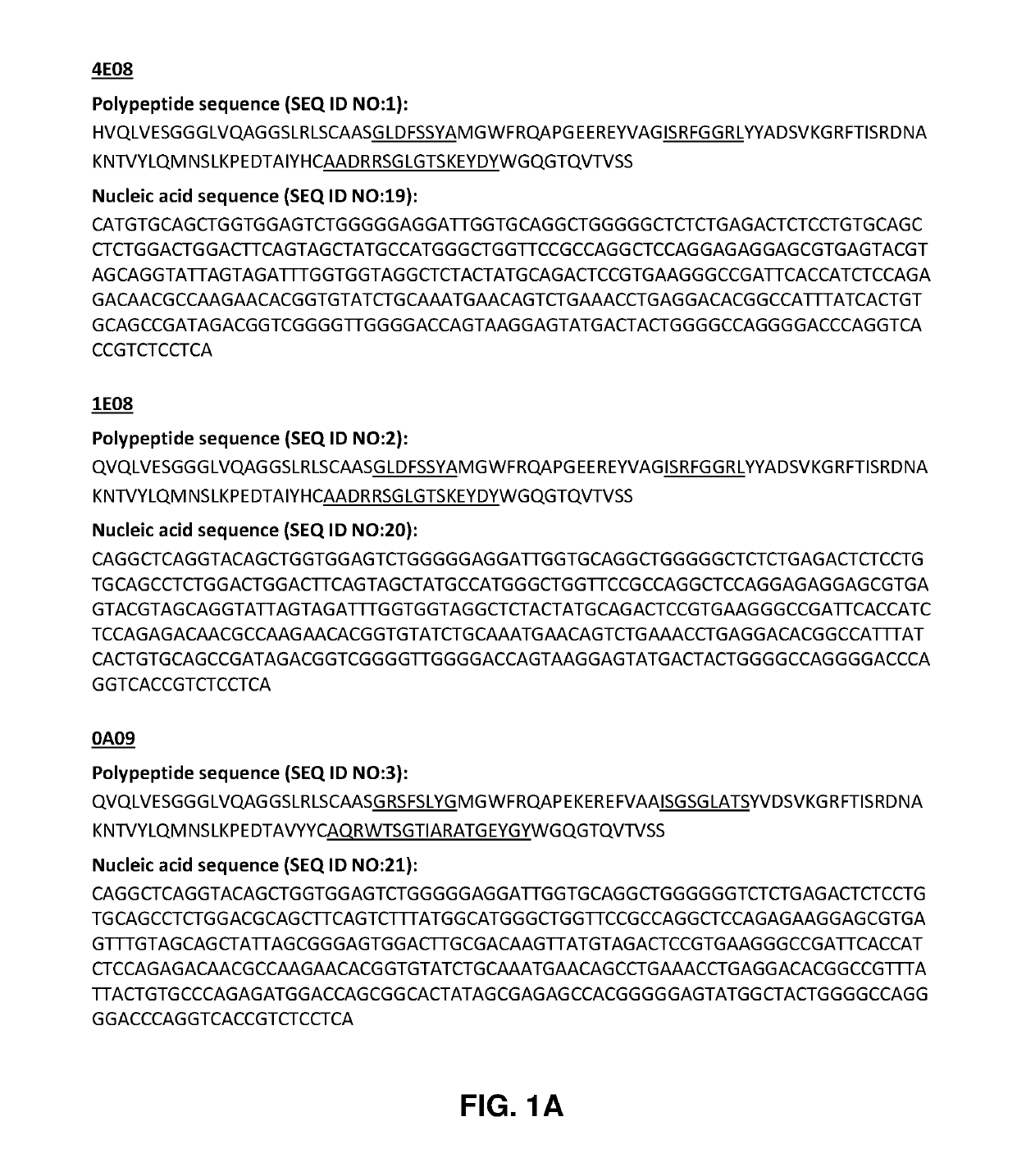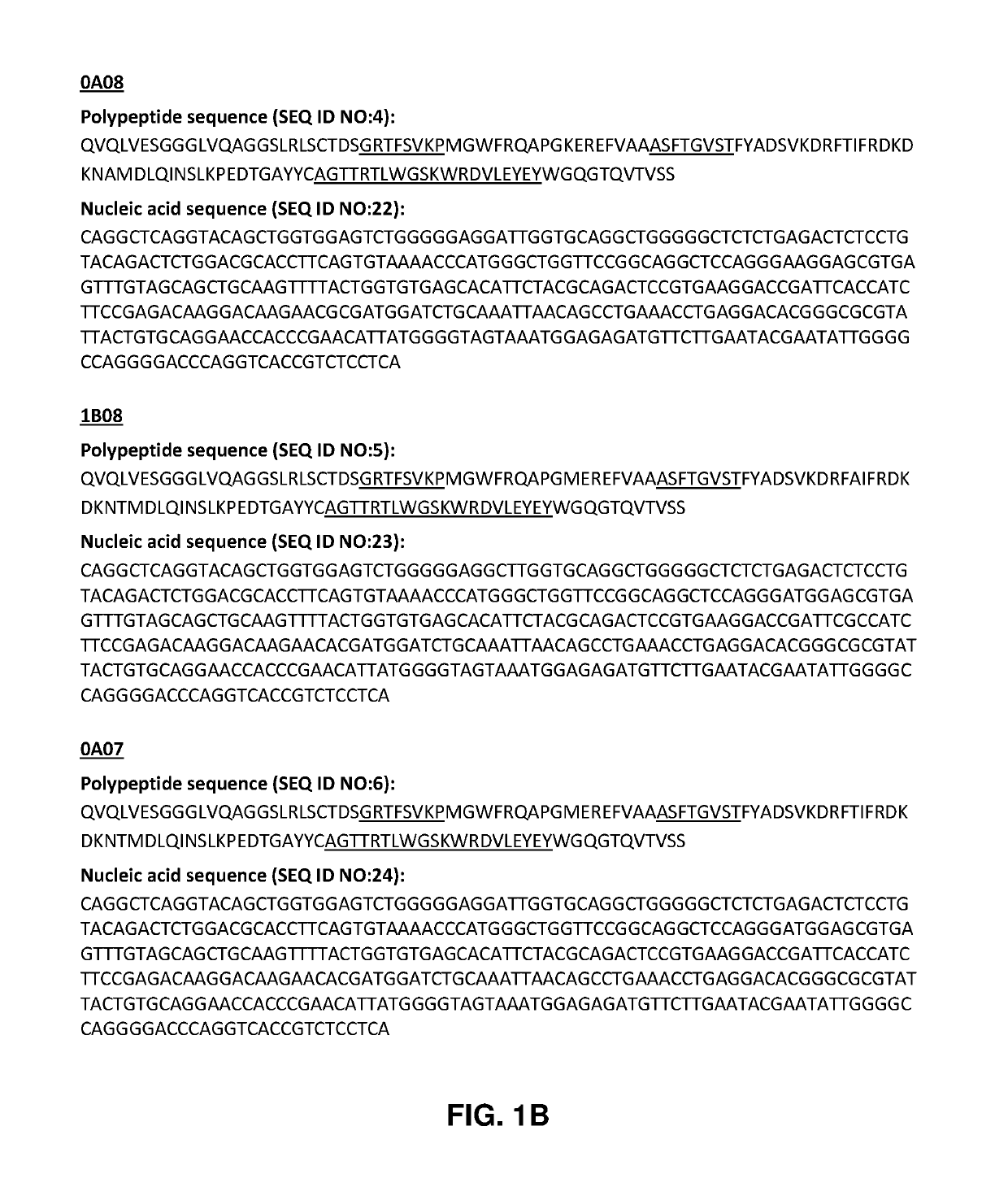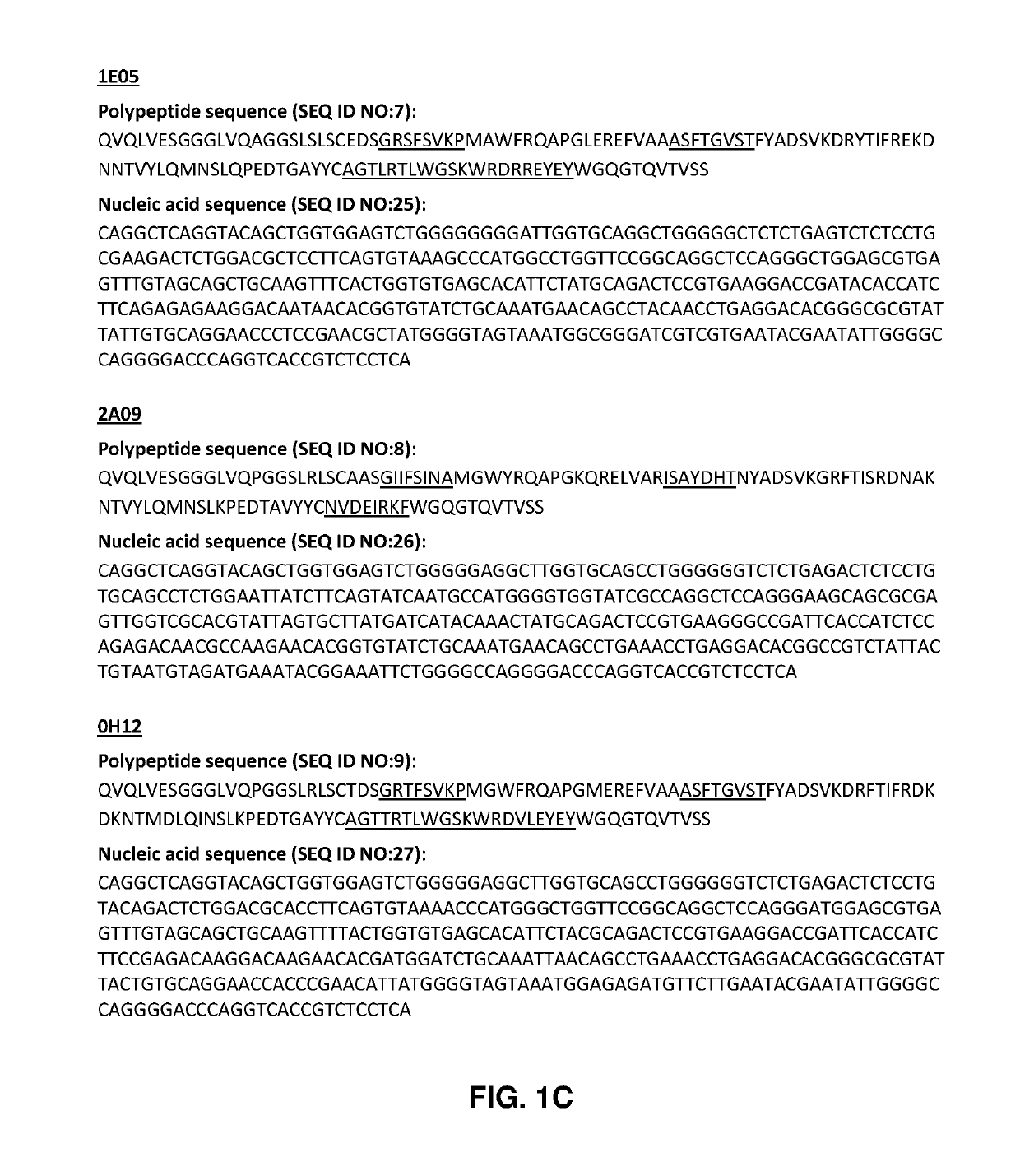Anti-salmonella antibodies and uses thereof
a technology of anti-salmonella and antibodies, which is applied in the field of antibodies, can solve the problems that vaccines do not eliminate the initial colonization of mucosal surfaces, and none of these products have been commercialized, and achieve the effect of low cost and easy expression
- Summary
- Abstract
- Description
- Claims
- Application Information
AI Technical Summary
Benefits of technology
Problems solved by technology
Method used
Image
Examples
example 1
[0077]Immunization of Alpaca with Different Strains of Salmonella
[0078]To isolate VHH domains that target Salmonella, three alpacas were immunized with different strains of Salmonella enterica.
[0079]Three male alpacas (Vicugna pacos) were immunized subcutaneously with Salmonella enterica serovars. Five injections were performed in total. Each animal was injected with a mixture of 4 Salmonella eneterica strains (1×109 cfu from each) that were heat inactivated (30 min at 65° C.) and mixed with adjuvant (aluminum hydroxide, Alhydrogel™ 2%). The injection groups consisted of:[0080]1—S. Typhimurium (SGSV1412, and SGSC4904), S. Entritidis (SGSC4901, SGSC3820);[0081]2—S. Newport (SGSC4910), S. Javiana (SGSC4917), S. Senftenberg (SGSC2516), S. Heidelberg (SGSC4966); and[0082]3—S. Hadar (SGSC4906), S. Kentucky (SGSC4914), S. Infantis (SGSC4905), S. SaintPaul (SGSC4920).
[0083]To prepare antigens for injection, Salmonella were cultured on LB agar plates. Approximately 1×109 cells were treate...
example 2
[0084]Phage Display Library Constructions
[0085]A hyper-immunized alpaca VHH library was constructed based on RNA isolated from the lymphocytes of animals immunized as in Example 1.
[0086]A phage display library was constructed using a standard protocol (Arbabi Ghahroudi et al., 2009). Lymphocytes were collected from the blood using Lymphoprep™ Tubes (Axis-Shield™, Oslo, Norway). Total RNA was isolated from approximately 1×107 lymphocytes collected on day 36 post-immunization using RNAzol™ kit (Bioshop™, Burlington, Ontario, Canada). First-strand cDNA was synthesized with oligo(dT) primers from the SuperScript III First Strand™ cDNA synthesis kit (Invitrogen™, Burlington, Ontario, Canada) using 6 μg total RNA as template according to manufacturer's recommendations. Variable and part of the constant domains DNA were amplified using oligonucleotides MJ1-3 (sense) and two CH2 domain antisense primers, CH2 and CH2b3 (for primer sequences see Arbabi Ghahroudi et al., 2009; Baral et al. 201...
example 3
[0087]Screening Phage Display Library to Select for VHHs Binding to Salmonella
[0088]The library screening (panning) was done through a sequential strategy using either whole, heat inactivated Salmonella bacteria or purified Salmonella flagellin protein (main component of flagella encoded by fliC gene) as a target. For the panning against whole Salmonella, the bacterial cells from 4 different strains were equally mixed and adjusted to an OD of 1 using PBS solution. The bacterial mixes were inactivated at 65° C. for 30 minutes and coated on a 96 well Maxisorb™ plate. To pan against flagellin protein (Flagellin from Salmonella typhimurium, purchased from Sigma™, cat#: SRP8029), flagellin solution (5 ug / ml, dissolved in PBS solution) was coated on a 96 well Maxisorp™ plate. For each panning, BSA-PBS solution (0.5% of BSA dissolved in PBS solution) was also coated on the same 96-well Maxisorp™ plate as a pre-screening control. The coated plates were then incubated at 4° C. overnight. Ne...
PUM
| Property | Measurement | Unit |
|---|---|---|
| total volume | aaaaa | aaaaa |
| OD | aaaaa | aaaaa |
| OD | aaaaa | aaaaa |
Abstract
Description
Claims
Application Information
 Login to View More
Login to View More - R&D
- Intellectual Property
- Life Sciences
- Materials
- Tech Scout
- Unparalleled Data Quality
- Higher Quality Content
- 60% Fewer Hallucinations
Browse by: Latest US Patents, China's latest patents, Technical Efficacy Thesaurus, Application Domain, Technology Topic, Popular Technical Reports.
© 2025 PatSnap. All rights reserved.Legal|Privacy policy|Modern Slavery Act Transparency Statement|Sitemap|About US| Contact US: help@patsnap.com



